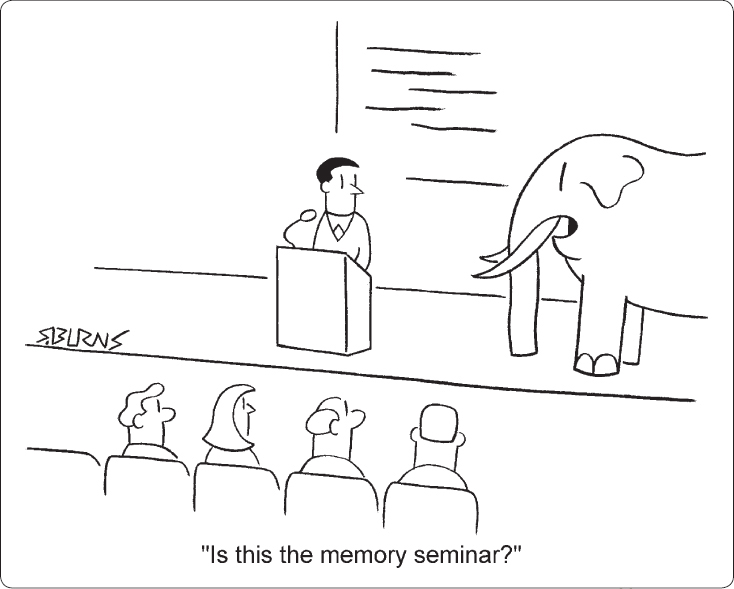Improving Your Memory
Throughout history, human memory has been a topic of great interest and fascination for scientists and the general public. Although severe problems with memory are extremely rare, you’re in good company if you find that your memory occasionally lets you down, especially if you’re nervous or stressed or when grades depend on immediate recall of what you have read, heard, or written.
YOUR TURN
Work Together
With your instructors help, identify other students in your class who share your learning style. Brainstorm with one another strategies for remembering material for exams using your learning style and keep track of the most helpful ideas.
So, how can you improve your ability to store information in your brain for future use? Psychologists and learning specialists have conducted research on memory and have developed a number of strategies that you can use as part of a study-skills regimen. Some of these strategies might be new to you, but others will be simple, commonsense ways to maximize your learning. You may have heard these ideas before, although perhaps not in the context of improving your memory.
The benefits of having a good memory are obvious. In college your memory will help you retain information and ace tests. After college the ability to recall names, procedures, presentations, and appointments will save you energy and time and will prevent a lot of embarrassment.
There are many ways to go about remembering. Have you ever had to memorize a speech or lines from a play? How you approach committing the lines to memory might depend on your learning style. If you’re an aural learner, you might choose to record your lines as well as lines of other characters and listen to them on tape. If you’re a visual learner, you might remember best by visualizing where your lines appear on the page in the script. If you learn best by reading, you might simply read the script over and over. If you’re a kinesthetic learner, you might need to walk or move across an imaginary stage as you read the script.

Although knowing specific words will help, remembering concepts and ideas can be much more important. To embed such ideas in your mind, ask yourself these questions as you review your notes and books:
- What is the essence of the idea?
- Why does the idea make sense? What is the logic behind it?
- How does this idea connect to other ideas in the material?
- What are some possible arguments against the idea?